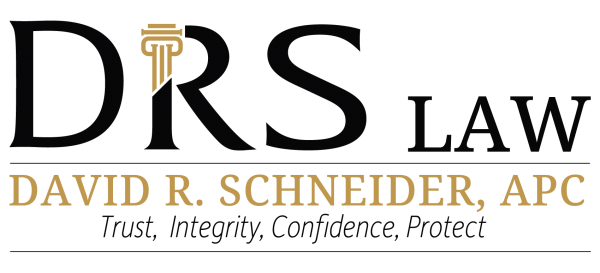Funding your trust is critical – the estate planning process consists of two steps;
1. Create the plan and express your wishes with respect to who gets what of your estate and who will assist in the management of that trust estate;
and
2. Fund your trust whereby assets are re-titled into the name of the trust.
The single biggest failure of an estate plan is that assets are not properly funded into the name of the trust. Then when the decedent’s assets are examined, someone realizes that they are not in trust but are still held in the decedent’s name – this means that the trust does not control those assets.
Those assets will be subject to a Will if there is one, intestate succession if there is not and very likely through a probate proceeding. Having a Will as a backup to the trust, called a Pour-Over Will, is often used to provide for the distribution of low-value assets that do not generally go into a trust, but this is not a substitute for a properly funded trust.
Also, if there are not enough assets in the trust to fulfill its intended purpose and to meet the needs of the beneficiary class, it would be considered underfunded, leaving the strong possibility of having your wishes for distribution frustrated and possibly not carried out.
What Does it Mean to Transfer Your Assets?
Writing a trust is only half the battle. Once the trust is written, all designated assets of the settlor or grantor must be moved/retitled into the name of the trust. To take a simple example, if you write a trust for the benefit of your children and want your house to be distributed to them upon your death, you must change the title of the house so that the trust is, in effect, the owner. Thus, in California, proper trust funding in this hypothetical situation would include executing, notarizing, and recording a new grant deed in the name of “the Trust” with the county recorder where the property is located. The owner grants the property to the trust, and this is reflected in their respective titles– grantor and grantee. This would hold true for most real property assets that you intend to be part of the trust.
An attorney is not strictly necessary but is recommended because failure to perform this task could result in the property not being legally recognized as part of the trust, litigation, or other negative consequences. A mistake, for example, could occur because the legal description in the new deed should generally be taken exactly from the existing deed. Keep in mind that the trust’s main benefit is to avoid the entire probate process, and funding and executing the trust must be done correctly to avoid probate. Too often, a grantor will make the mistake of thinking that executing the trust with a schedule of assets is enough to make their estate plan work.
What Should I Transfer to My Trust?
This question is easy to answer once the purpose of the trust is clarified and memorialized. Different households and individuals have different goals, and that must be considered. The trust document and its structure will dictate the assets that can be transferred to the trust. Some assets may have tax implications that need to be analyzed. Generally speaking, most assets that can be retitled in the name of the trust, should be retitled into the name of the trust. Most estate plans have a similar purpose, and the assets that will be moved when trust funding takes place include the following:
- Real estate holdings (e.g., house, business, investment property)
- Personal property (such as jewelry, vehicles, artwork and collectibles)
- Bank and investment accounts (checking, savings, money market, equities, bonds)
- Business interests (whole or partial ownerships)
- Life insurance policies
- Intellectual property
Essentially, anything of significant economic or personal value should be transferred. These assets will be used to ensure that your trust is properly funded and will meet the needs of the beneficiaries as you have intended. As you acquire new assets, they should also be moved into a trust– often right at the time of acquisition. If you have any doubts about what to include, it is a perfect thing to ask your attorney.
Who Should I Include in My Trust?
The answer to this question comes down to the individual differences between households. It depends on how many beneficiaries you would like to see covered by your estate plan. Most people include their spouses and children as beneficiaries. Similarly, most people who have grandchildren also include them in some fashion, and future generations too. Siblings, parents, and other family members also are included in trust and estate planning. In modern times, “blended” families are increasingly the norm, and there are ways to acknowledge new relationships and distributions that might follow.
Another important decision alongside who the beneficiaries are is who will execute the trust as the successor trustee after you. This person needs to be trustworthy and competent. He or she will have to make sure that the trust is compliant with the law and execute the commands of the trust. Additionally, the trustee will have to communicate effectively with all prospective beneficiaries and stakeholders when it is time to marshal the assets. Successor trustees should be considered and listed, if possible, in case the initial trustee becomes unavailable.
Make Sure Your Trust is Properly Funded with Your Attorney’s Help
After the key decisions are made regarding the goals of the trust, who it will benefit, and who the trustee will be, the funding should take place. Generally, this is simple, yet detail-laden work, and estate planning attorneys specialize in this work. The devil is in the details and our professional staff is enthusiastic about being error-free and efficient in this type of work. Experience matters, and you need counsel from someone who knows the local government and financial institutions when possible.
Trust consultations are available virtually and in the office, and David is happy to help clients throughout California. He has helped thousands of families successfully set up and fund their trusts. David sees clients by appointment only to ensure that each has his undivided attention. Contact us to schedule a free consultation today at 805-374-8777 or dschneider@drs-law.com. We look forward to hearing from you and helping you set up your comprehensive estate plan, including a trust, pour-will, durable power of attorney, advanced health care directive and nomination of guardian and/or special needs trusts, where needed.
You can learn more about the Law Offices of David R. Schneider and read past blog posts at www.drs-law.com.

